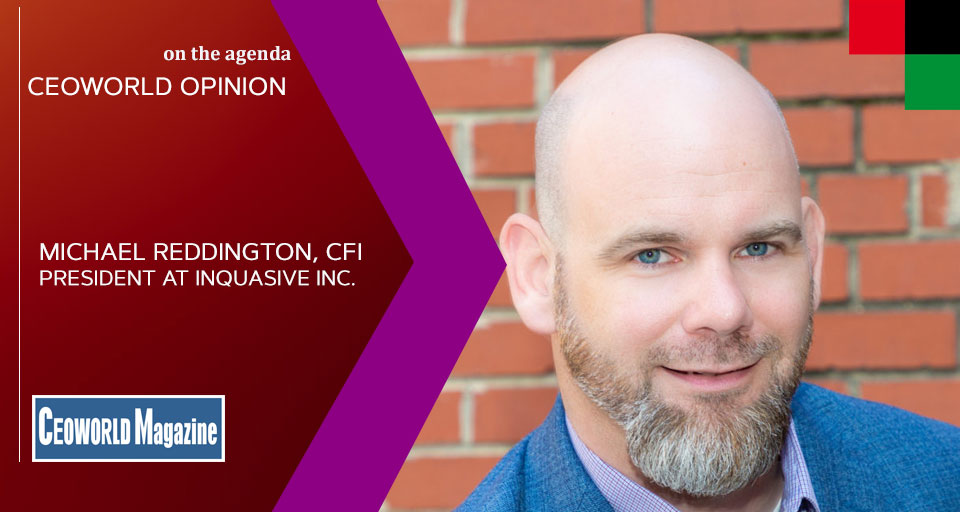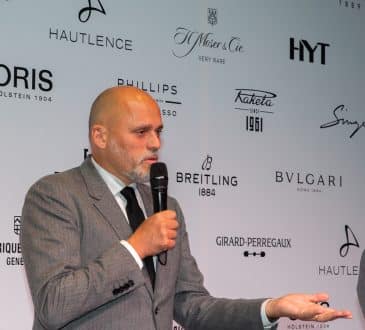Requiem For A Handshake: Why CEOs shouldn’t give up the greeting

Perceptions of CEO’s personal brands aren’t typically driven by their wealth, resume or profits. Their personal brands are built on the perception of their listening and empathetic communication skills. In many ways CEOs can use one technique to either leverage or reset this perception – a great handshake.
Well, at least prior to covid-19 they could. Remember the good old days when we could shake people’s hands? It was likely such a routine aspect of our conversations that we never thought much of it. Of all the routine activities covid-19 has taken from us, the handshake may be among the most damaging. Here in the United States, shaking hands was the one great exception to our standard understanding that we aren’t supposed to touch each other during business interactions. In many cases it created the perfect opportunity for CEO’s to demonstrate the respect, appreciation and value they feel towards their employees.
The last year and half has seen the business culture in the United States shift from “don’t touch me” to “don’t come to work”, to “don’t come within six feet away from me”, to suspiciously judging whom it may be safe to share space with. The added distance between us has limited opportunities for CEO’s to connect with their leadership teams, employees, customers and corporate partners. This resulting gap in communication has allowed all of these stakeholders to arrive at their own assumptions regarding how their CEO’s, and by extension their organizations, value them.
People perceive how CEOs communicate with them as proof for how much their CEO’s respect them because it is often the only tangible gauge they have. This includes the perceived frequency, length, transparency, verbal and non-verbal behavior and the opportunity to actually speak to their CEO. Yet CEO’s often fall prey to the conflicting forces that are constantly infringing on their calendars and stealing any free moments they believe they may have to connect with others. Unfortunately, time is the enemy of empathy. The more CEO’s focus on the ticking clock in the back of their mind the quality of their communication suffers. All too often CEO’s feel like they don’t have the time to acknowledge someone, or that another individual doesn’t need to know something. Unfortunately their employees almost always perceive these missed communication opportunities as signs that they are not valued.
In addition to shaking hands there are a few additional techniques CEOs can leverage to improve their perceptions as communicators. The first is simple, say hello to every person you walk past. Every. One. Just making eye contact, smiling, nodding and saying hello makes people feel acknowledged and appreciated. Walking past someone without saying hello makes them feel non-existent in your world. The greater the distance between you and the person you’re walking past on the org chart the more important this is.
Another opportunity presents itself when someone approaches you and says “Do you have five minutes?” When CEO’s respond by saying “No” or “I have three minutes before my next meeting, what do you need?” they tell their counterparts “you aren’t worth three minutes of my time.” CEO’s can reverse this dynamic by replying “What can I help you with?” and letting their counterparts explain the issue. While there are always exceptions, this will usually take less than five minutes. Once your counterparts have finished their explanations you can say “Thank you. I want to make sure I don’t cut our time short. I have a meeting I need to get to in two minutes. Can you meet me back here at 3:00?”. By reversing the order of your response you allow your employee to feel heard, respected and surprisingly more motivated to attempt to solve the problem on their own before 3:00.
While these small tactics are powerful, nothing may be more effective than a handshake. CEO’s stop the clock when they stop to shake someone’s hand. Everyone knows how busy CEOs are. The act of just stopping and taking the time to shake hands sends an important signal. This effect is magnified when CEO’s look their counterparts in the eye, use or ask for their name, ask how they are doing and engage them. Even for a moment.
Handshakes can also be used as a tool for resetting expectations for conversations in the CEO’s office. Instead of creating a parental relationship with another adult by sitting behind your desk and motioning someone to come sit across from you, stand up and come out from behind your desk. Shake their hand, welcome them, thank them for their time and sit on the same side of the desk for your conversation. This approach establishes adult relationships that are far more likely to facilitate the commitments CEO’s desire to create.
Leveraging the benefits of handshakes hinges on the perceived sincerity of the gesture. If people feel like you are working a handshake line at a political event they won’t feel the personal connection. If you squeeze their hand too hard, or worse, roll your hand on top of theirs to assert dominance you may destroy the relationship.
No matter how approachable they work to be, CEO’s can be intimidating by default. Now imagine how much more uncomfortable people may feel if they are or trying to decide if they should shake your hand, bump fists, bump elbows or just stand at a distance. A warm smile and extended hand will instantly kill that insecurity and set the tone for the ensuing interaction.
The decision to shake hands (and accept a handshake) is a personal choice in our new reality. If you believe it is something your counterparts are likely comfortable with, quickly put it back in your repertoire. In a world with physical connections are increasingly rare, the power of a reciprocated handshake has multiplied.
No matter how much different our world feels one thing remains unchanged:people have a burning need to feel acknowledged, respected and valued. This is especially true as the war for talent continues to evolve for business leaders across industries. As organizations continue to invest in intricate culture, diversity, and engagement strategies, they may overlook the fact that the everyday interactions provide the perfect opportunity for CEO’s to demonstrate the value they feel towards all of their employees.
——–
Written by Michael Reddington, CFI.
Add CEOWORLD magazine to your Google News feed.
Follow CEOWORLD magazine headlines on: Google News, LinkedIn, Twitter, and Facebook.
Copyright 2024 The CEOWORLD magazine. All rights reserved. This material (and any extract from it) must not be copied, redistributed or placed on any website, without CEOWORLD magazine' prior written consent. For media queries, please contact: info@ceoworld.biz








